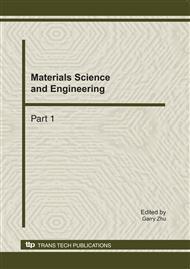p.145
p.150
p.156
p.162
p.167
p.174
p.179
p.186
p.192
An Advanced Self-Adaptive Iterative Decoding Scheme Based on Stopping Criterion
Abstract:
This paper proposes an advanced iterative decoding scheme based on stopping criterion for BICM-ID embedded turbo codes. A fixed iterative number scheme has been used in the receiver and lower complexity than the conventional schedule can be achieved. To acquire a smaller total iterative number and fewer calculations of CE, the maximum and minimum iterative numbers (Imax/Imin) are introduced in this proposed scheme. However, iterative numbers which correspond to different SNRs are varied. In order to receive better flexibility, both Imax and Imin, whose values are not unique, are determined by the statistics of the average iterative numbers and the CG criterion. Simulation results confirm that, compared with the fixed iterative number scheme, similar BER performances and much lower complexity can be achieved. Further improvement of the adaptability results from this self-adaptive option of Imax/Imin.
Info:
Periodical:
Pages:
167-173
Citation:
Online since:
January 2011
Authors:
Price:
Сopyright:
© 2011 Trans Tech Publications Ltd. All Rights Reserved
Share:
Citation:


